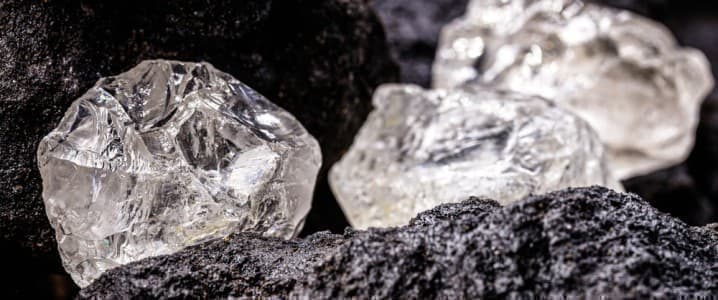A massive, early-stage lithium mining project in Serbia faces huge and animated public opposition, casting some doubt on the viability of a key component of Western Europe's push for a "green transition" away from fossil fuels. Opposition to the Rio Tinto Group project is powered by a hybrid engine fueled by environmentalism and nationalism.
The size and intensity of the opposition was on full display earlier this month, as an estimated 24,000 to 27,000 marching protesters filled wide boulevards in Belgrade, chanting "Rio Tinto get out of Serbia" and "you will not dig," and carrying signs saying "We do not give Serbia away." Others disrupted train travel by filling two of the city's stations, with some blocking the tracks.
Over the past few years, the mine project has been a stop-and-go affair. After Rio Tinto's license was given the green light in 2019, it was revoked in 2022 amid the final run-up to Serbia's general election -- following months of enormous protests like the one seen a few weeks ago. Then-Prime Minister Ana Brnabic said the decision was made in deference to the protesters, and declared, "We put an end to Riot Tinto in Serbia."
This July, however, a court ruled the revocation was unconstitutional, and the license was restored shortly after. Pressure from the European Union likely figured in the change of course -- Serbia wants to join the EU.
If it proceeds to production, Rio Tinto's $2.55 billion Jadar Valley mine in the western part of the country would be the largest lithium mine in Europe, with the potential to fill 90% of Europe's current lithium demand. It would also assure Rio Tinto a spot among the global leaders of the mineral that's a critical ingredient of lithium-ion batteries.
“There is no green transition in Europe without this lithium,” Rio Tinto's top dog in Serbia, Chad Blewitt, told the New York Times. His company has spent more than a half-billion on land acquisitions and exploration already, and it could be another two years until production is underway. Rio Tinto (RIO) shares closed Friday at $61.28, and have traded between $59 and $75 over the past 52 weeks.
Opposition groups want a permanent, countrywide ban on lithium and boron mining. "We are not going to give up. The mine cannot be built on agricultural land," 63-year-old protester Mica Miliovanovic told Reuters. "This does not have anything to do with politics." Separately, 25-year-old Angela Rojovic told the Times, “I don’t need green cars. I need green apples and green grass.”
In a promotional video that aims to reassure Serbians of the mine's economic benefits and minimal environmental impact, Rio Tinto says "the critical minerals are found below the surface, separated from water sources. Around 200 kilometers of tunnels will link underground mining operations...while farming continues above the mine."
Nonetheless, some Serbians say their land is being exploited and their health jeopardized to advance the aims of people outside the country. "[We] fear Serbia will be sacrificed to provide lithium for electric vehicles that pretty much nobody in Serbia can afford," Green-Left Movement co-director Biljana Djordjevic told the BBC.
There's also a geopolitical element: For some, the mine is a litmus test separating those who want to align the country with the United States and Western Europe against those who want to maintain a relationship with Russia. When the latest round of protests erupted, officials claimed the real objective was toppling the government of President Aleksandar Vucic -- who himself said intelligence from the Russian Federation indicated a coup was in the works.
In addition to environmentalists, members of the ultranationalist, Russia-friendly People's Patrol have also joined in the anti-mine protests. When Vucic decided to back the mine in July at the urging of the EU, it was seen as an indication of his intent to disengage from Russia.
German officials have been pushing the project hard, with Chancellor Olaf Scholz and Mercedes Benz executives visiting Belgrade last month. However, the German element ruffles some feathers in Serbia. Dragan Karajcic, a politician leading villages in the vicinity of the mine, told the Times he was seething when the Germans assured Serbians the mine would be safe. He pointed to Nazi atrocities that took place in nearby Draginac in 1941, with thousands of civilian executions following similar assurances of the locals' safety.
ADVERTISEMENT
Nebojsa Petkovic, a villager who traveled to Belgrade to lead the August 10 protests, told the Times, “Let the Germans save the planet. We need to save ourselves.”
By Zerohedge.com
More Top Reads From Oilprice.com
- China's Coal Production Surges to Meet Energy Demands
- Gran Tierra Energy Acquires i3 Energy in £175 Million Deal
- Lithium Market Potential: Evaluating Supply and Demand Dynamics



















Why would opposition to Rio Tinto interests be equaled with support of Russia?! Just bcs some Russia supporters abused protests? It is logical fallacy called "non-sequitur" which means that the conclusion doesn't follow from your previous statements.